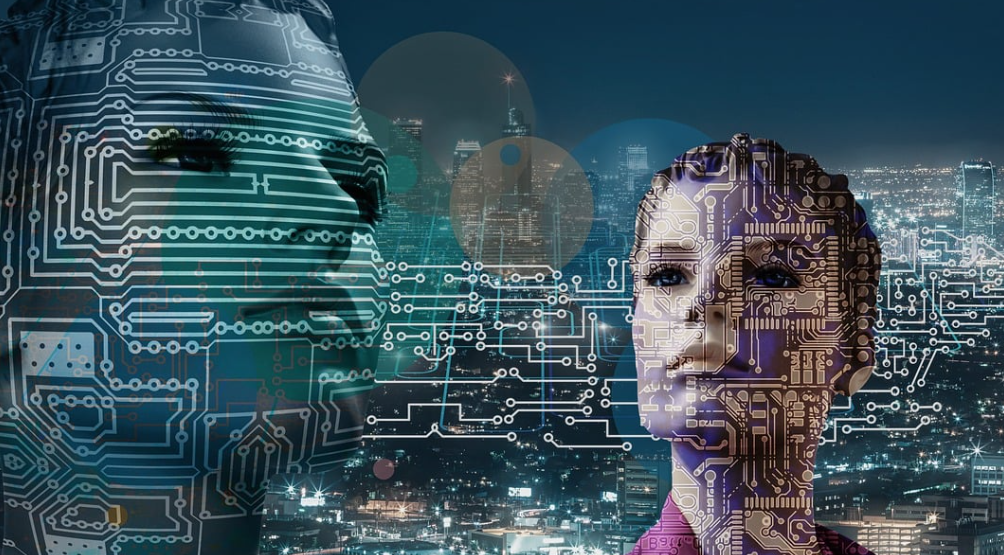Blog
The Fourth Industrial Revolution and Its Impact on Society

In recent years, the term “Fourth Industrial Revolution” has gained significant attention, promising to revolutionise various aspects of our society. This includes how we work, communicate, and live.
This latest wave of technological advancements is characterised by the fusion of digital, physical, and biological systems, leading to ground-breaking innovations and transforming industries across the globe. In this blog post, we will explore the concept of the Fourth Industrial Revolution, delving into its profound impact on society.
Understanding The Fourth Industrial Revolution
The Fourth Industrial Revolution, also Industry 4.0, refers to the current phase of technological advancements built upon the foundation of the previous three industrial revolutions.
Key Technologies Driving the Fourth Industrial Revolution
- Artificial Intelligence and Machine Learning: They emerged as fundamental technologies in the Fourth Industrial Revolution. ML algorithms enable machines to learn and depict from experience and improve their performance over time. This combination of AI and ML has revolutionised industries by enhancing efficiency, enabling predictive analytics, and supporting automation.
- Robotics and Automation: Robots and automation are crucial in the Fourth Industrial Revolution. Advanced robots with AI capabilities can perform complex tasks, improving productivity, precision, and safety in various sectors. Automation technologies have the potential to replace repetitive and mundane jobs, freeing up human resources to focus on more creative and strategic tasks.
- Internet of Things (IoT): The Internet of Things connects everyday objects to the Internet, allowing them to collect and exchange data. IoT devices enable seamless physical and digital systems integration, creating smart environments that optimise processes and enhance user experiences. IoT is transforming everything, from smart homes to smart cities, from how we interact with our surroundings to business operations.
The Impact of the Fourth Industrial Revolution on Society
The Fourth Industrial Revolution reshapes society, profoundly impacting various sectors and individuals’ lives. Let us examine the impacts individually:
-
Economic Transformation and Job Disruption
The integration of advanced technologies in industries is leading to an economic transformation. Automation and AI are streamlining processes, improving productivity, and reducing costs. However, this shift also brings challenges, particularly regarding job disruption. The automation of certain tasks may result in job displacement for some individuals. On the other hand, new job opportunities are emerging as industries adapt to the changing technological landscape. Upskilling and retraining the workforce become essential to ensure smooth transitions and reduce inequalities caused by this disruption.
-
Enhanced Connectivity and Communication
The Fourth Industrial Revolution has revolutionised connectivity and communication. With the advent of the Internet of Things, interconnected devices enable seamless information sharing and real-time communication. This connectivity has transformed industries such as healthcare, transportation, and logistics. It has also enhanced social connectivity, allowing people to connect globally, collaborate remotely, and share knowledge more efficiently.
-
Ethical and Social Implications
As the Fourth Industrial Revolution progresses, it brings ethical and social implications that require careful consideration. Data privacy, cybersecurity, and algorithmic bias become increasingly important. Ensuring the responsible development and deployment of technologies is crucial to mitigate risks and ensure a fair and inclusive society. It is imperative to balance technological advancements and safeguard fundamental human rights.
Shaping a Responsible Tech-Focused Future
The Fourth Industrial Revolution is an era of unprecedented technological advancements with immense potential to transform society. We can enhance productivity, connectivity, and overall well-being by harnessing the power of AI, robotics, IoT, and automation.
However, careful consideration must be given to the ethical, social, and economic implications of creating an inclusive, equitable, and sustainable future. Embracing this revolution requires a collective effort from individuals, businesses, and governments to harness its benefits while addressing the challenges it presents. By doing so, we can shape a future that leverages technology to enhance human potential and improve society.
-
Blog1 year ago
MyCSULB: Login to CSULB Student and Employee Portal – MyCSULB 2023
-
Android App3 years ago
Cqatest App What is It
-
Android1 year ago
What Is content://com.android.browser.home/ All About in 2023? Set Up content com android browser home
-
Software2 years ago
A Guide For Better Cybersecurity & Data Protection For Your Devices
-
Latest News2 years ago
Soap2day Similar Sites And Alternatives To Watch Free Movies
-
Android2 years ago
What is OMACP And How To Remove It? Easy Guide OMACP 2022
-
Android3 years ago
What is org.codeaurora.snapcam?
-
Business2 years ago
Know Your Business (KYB) Process – Critical Component For Partnerships





















